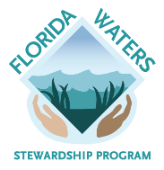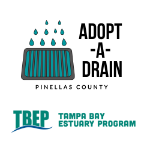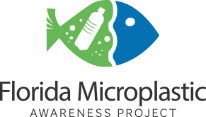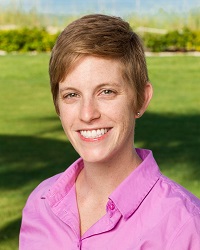
Water Resource Education
My main Extension programs focusing on water resources include the Florida Waters Stewardship Program, the Florida Microplastic Awareness Project, and the Adopt-A-Drain program. Learn more below...
Florida Waters Stewardship Program
 The Florida Waters Stewardship Program (FWSP) is a multi-session program focusing on, you guessed it, Florida's waters! The program is only offered once a year and involves 7-9 sessions with a cohort of ~20 people. Each session takes place at a different location in Pinellas County and focuses on a new water topic. The program also focuses on people-skills because, well, how can we make change without people?! In addition to the in-class session, the program includes a stewardship project, online explorations between class sessions, and an interactive online forum. It's a pretty involved program, but very much worth the time and cost if you care about Florida's water resources. But don't take my word for it, see what former program participants have said:
The Florida Waters Stewardship Program (FWSP) is a multi-session program focusing on, you guessed it, Florida's waters! The program is only offered once a year and involves 7-9 sessions with a cohort of ~20 people. Each session takes place at a different location in Pinellas County and focuses on a new water topic. The program also focuses on people-skills because, well, how can we make change without people?! In addition to the in-class session, the program includes a stewardship project, online explorations between class sessions, and an interactive online forum. It's a pretty involved program, but very much worth the time and cost if you care about Florida's water resources. But don't take my word for it, see what former program participants have said:
- "I loved this class and the connections to other resources, classes and people."
- "Thank you for creating such a great program!"
- "Fabulous course & instructor!"
If you want to be the first to know about the next course offering, complete this form.
Water Resource Factsheets
Pinellas County Adopt-A-Drain Pilot Program

Inspired by other successful Adopt A Drain programs throughout the country, Lara started a pilot program right here in Pinellas County! Participating is easy - pick a storm drain to adopt and help to keep it free and clear of litter and debris throughout the year. Help improve water quality of our area water bodies by adopting a drain today. Find out more on the Adopt-A-Drain website or check out this promo video.
Florida Microplastic Awareness Project
 Microplastics are a relatively new water quality concern being found throughout the world. The Florida Microplastic Awareness Project (FMAP) focuses on outreach and citizen science to educate people about this topic. You can find out all about this effort on the website. We encourage you to:
Microplastics are a relatively new water quality concern being found throughout the world. The Florida Microplastic Awareness Project (FMAP) focuses on outreach and citizen science to educate people about this topic. You can find out all about this effort on the website. We encourage you to:
- Consider taking a pledge to reduce your contribution to microplastics
- Invite me to come speak to your community group about microplastics
- Get involved in the collection, filtering and analysis of local water samples
If you think this isn't a local problem, check out our interactive map that shows where microplastics are being found right here in the Tampa Bay area. If you want to learn more, check out the resources on the right-hand side.
Already an FMAP volunteer?
Remember to watch the step-by-step videos before collecting, filtering and analyzing your sample to ensure you are doing it correctly. Also note, it can take up to two hours to filter some samples. We recommend to filter a sample, let it sit for at least 24 hours and then come back in to analyze your sample once it has dried. Analysis will take a couple of hours as well. It's a process, but a worthwhile one to help us collect local microplastics data! THANK YOU!
Microplastics Factsheets
CONTACT

Lara Milligan Natural Resources Agent 727-453-6905 lara317@ufl.edu
Physical & Mailing Address 12520 Ulmerton Rd Largo, FL 33774
Hours Monday - Friday 8:00am – 5:00pm
Resources
- Lara's Blogs About Water
- Florida Microplastic Awareness Project Multimedia & Outreach
- Southwest Florida Water Management District
- Tampa Bay Water
- Tampa Bay Estuary Program
- Wildlife of Florida Webinar Recordings
- Create Habitat for Wildlife
- Everyday Nature Blogs
- UF/IFAS Extension Wildlife Publications
- Florida Fish and Wildlife Conservation Commission

